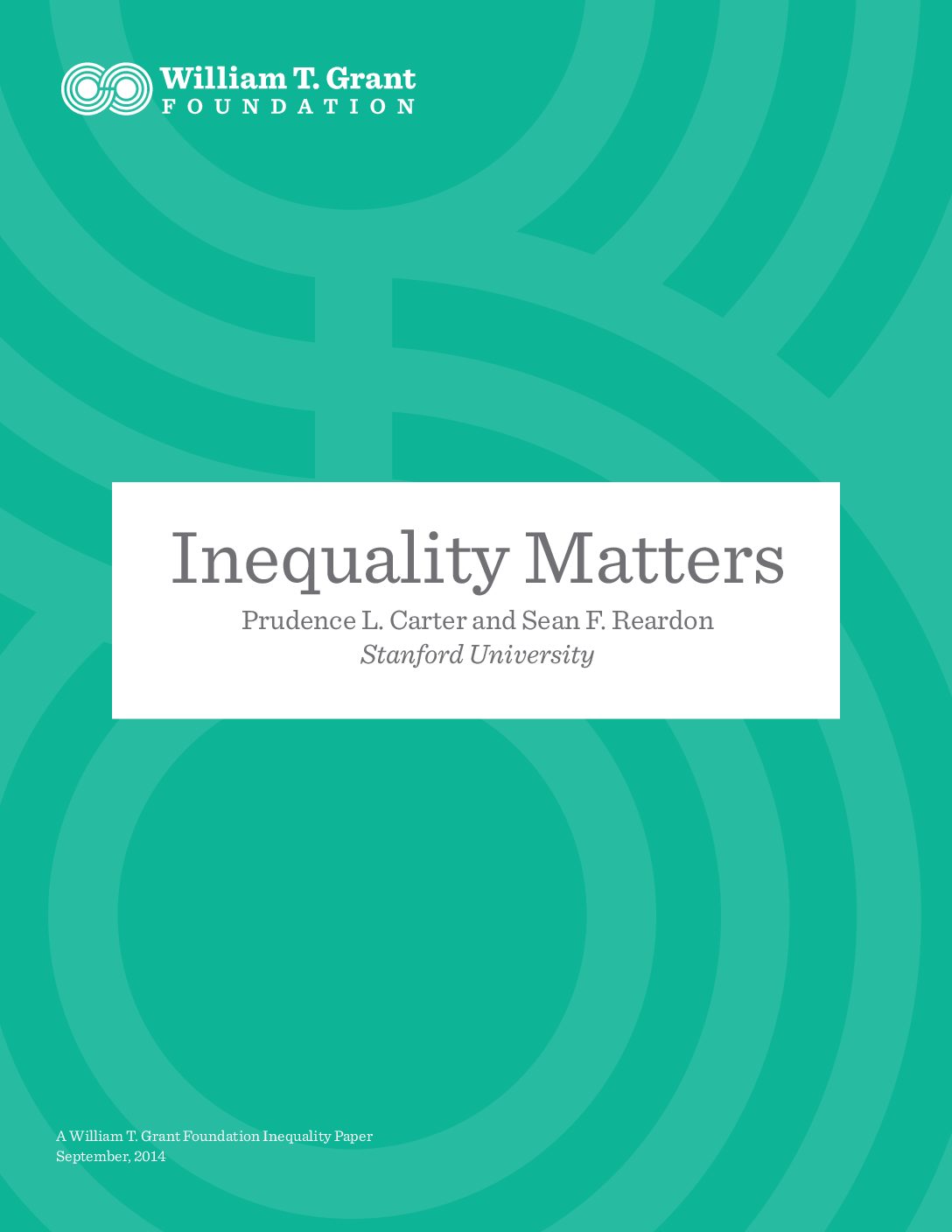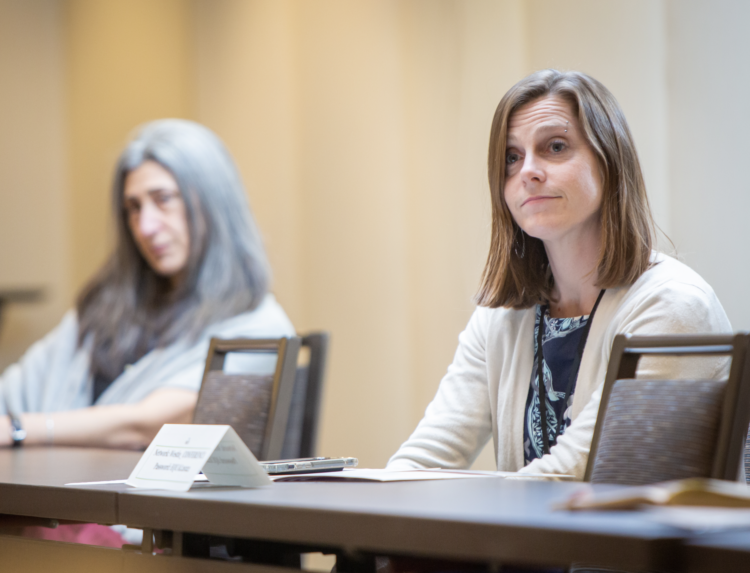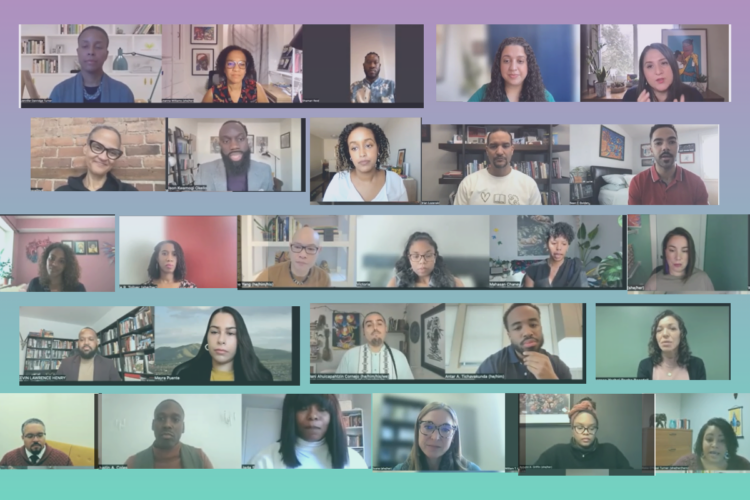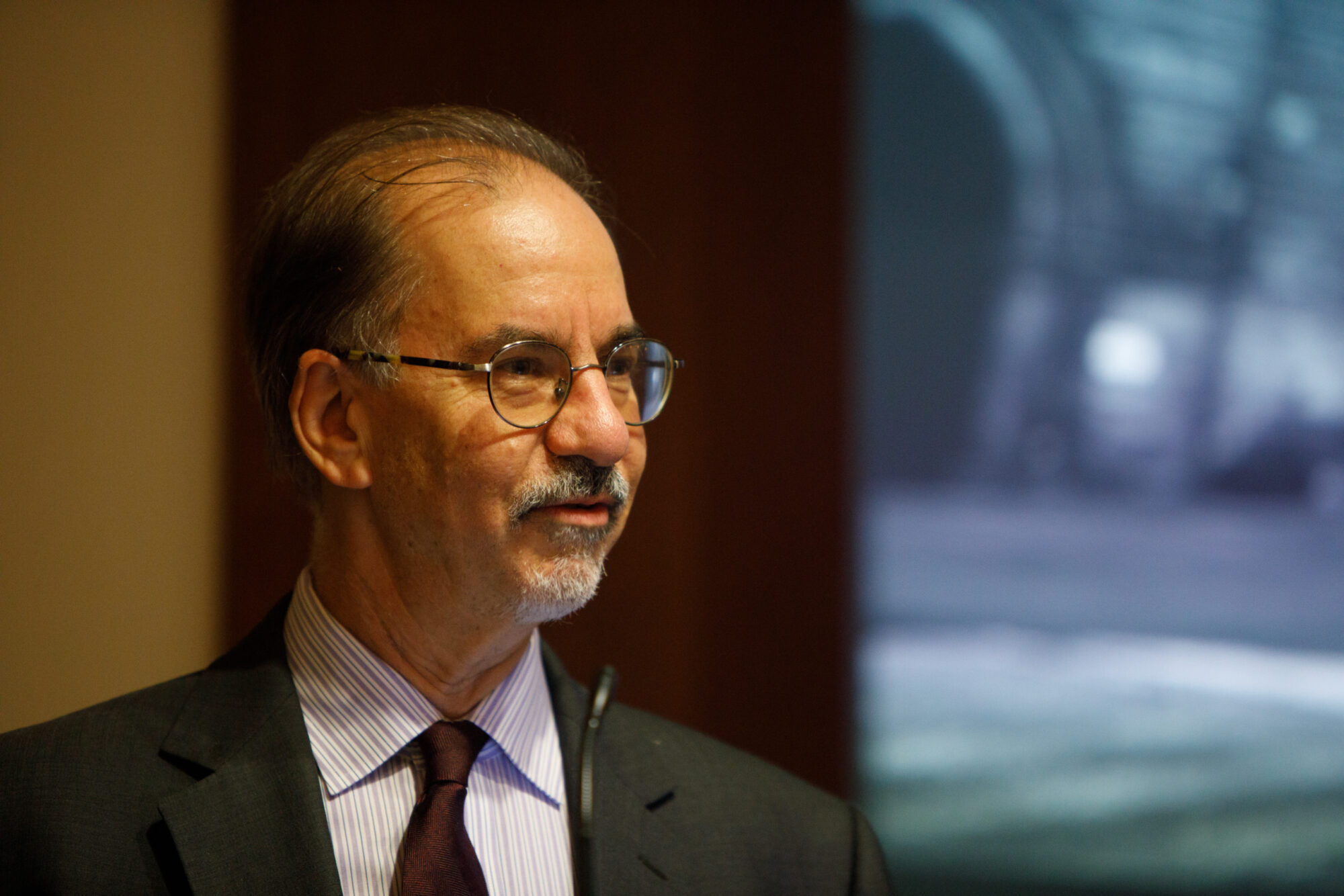Inequality is a fundamental challenge facing our nation. At the William T. Grant Foundation, we believe that responses to inequality can mitigate its effects, and, moreover, that there is a pressing need for new research to identify effective responses. To address this need, we recently initiated a new grantmaking program to support research on programs, practices, and policies that reduce inequality in outcomes for young people.
As we begin this new effort, we face many questions. How do we define inequality? Along what dimensions and on which outcomes should we focus? How can we stimulate research that will identify high-priority, powerful levers to reduce inequality?
As a starting point towards answering these questions, we have commissioned a series of essays by leading scholars in four areas that exhibit deep divisions in the way young people from different backgrounds experience daily life: the justice system, postsecondary education and workforce development, immigration, and mental health. The presence of these divisions is already well documented:
- The justice system: Among young men ages 18-19, Hispanics are three times as likely and African Americans are more than nine times as likely as Whites to be imprisoned.1
- Postsecondary education: The gap between young people from high-income and low-income families in college enrollment and completion has grown considerably over the past four decades.2
- Immigration: Increased diversity represents a profound change for U.S. society, yet our school system appears ill equipped to respond to the changing population.3
- Mental health: Undocumented immigrants to the U.S. are especially vulnerable to mental health stresses, yet face limited access to care.4
While inequalities in these domains pose major challenges to our nation’s well-being, efforts to explore and experiment with responses offer an opportunity to chart out new directions for the future. New research is urgently needed to identify responses that are effective in addressing the challenges.
We hope the charge presented in this paper will stimulate our colleagues in the research community to develop new programs of research, and we look forward to supporting these important endeavors.
Before considering these specific domains, the first essay in the series will help us reach a common understanding of social inequality, its implications for society, and the challenges it poses to researchers. Inequality Matters,by Prudence Carter and Sean Reardon, identifies important gaps in current scholarship on social inequality, articulates different meanings of social inequality, and boldly charts out new avenues for research. The new research directions identified by the authors resonate strongly with our funding initiative; in particular, the call for researchers to move beyond identifying the sources of inequality to build, assess, and improve responses to inequality is central to our efforts. We hope the charge presented in this paper will stimulate our colleagues in the research community to develop new programs of research, and we look forward to supporting these important endeavors.
We invite you to join our effort and encourage you to follow the succeeding four essays as they emerge. Most of all, we hope you will propose new research that responds to the challenges laid out in these papers.
Inequality Matters began as part of the Ford Foundation’s project on Building Knowledge for Social Justice, and we are grateful to our colleagues at Ford for allowing Professors Carter and Reardon to continue working on the paper under our sponsorship, and to release it in the context of our inequality initiative.
- Bureau of Justice Statistics. (2013). Prisoners in 2012. U.S. Department of Justice. https://bjs.ojp.gov/content/pub/pdf/p12tar9112.pdf
- Bailey, M. J., & Dynarski, S. M. (2011). Gains and gaps: A historical perspective on inequality in college entry and completion. In G. Duncan & R. Murnane (Eds.), Whither Opportunity?. Russell Sage.
- Dondero, M., & Muller, C. (2012). School stratification in new and established Latino destinations. Social Forces, 91, 477-502. https://doi.org/10.1093%2Fsf%2Fsos127
- Sullivan, M. M., & Rehm, R. (2005). Mental Health of undocumented Mexican immigrants: A review of the literature. Advances in Nursing Science, 28, 240-251. https://doi.org/10.1097/00012272-200507000-00006








